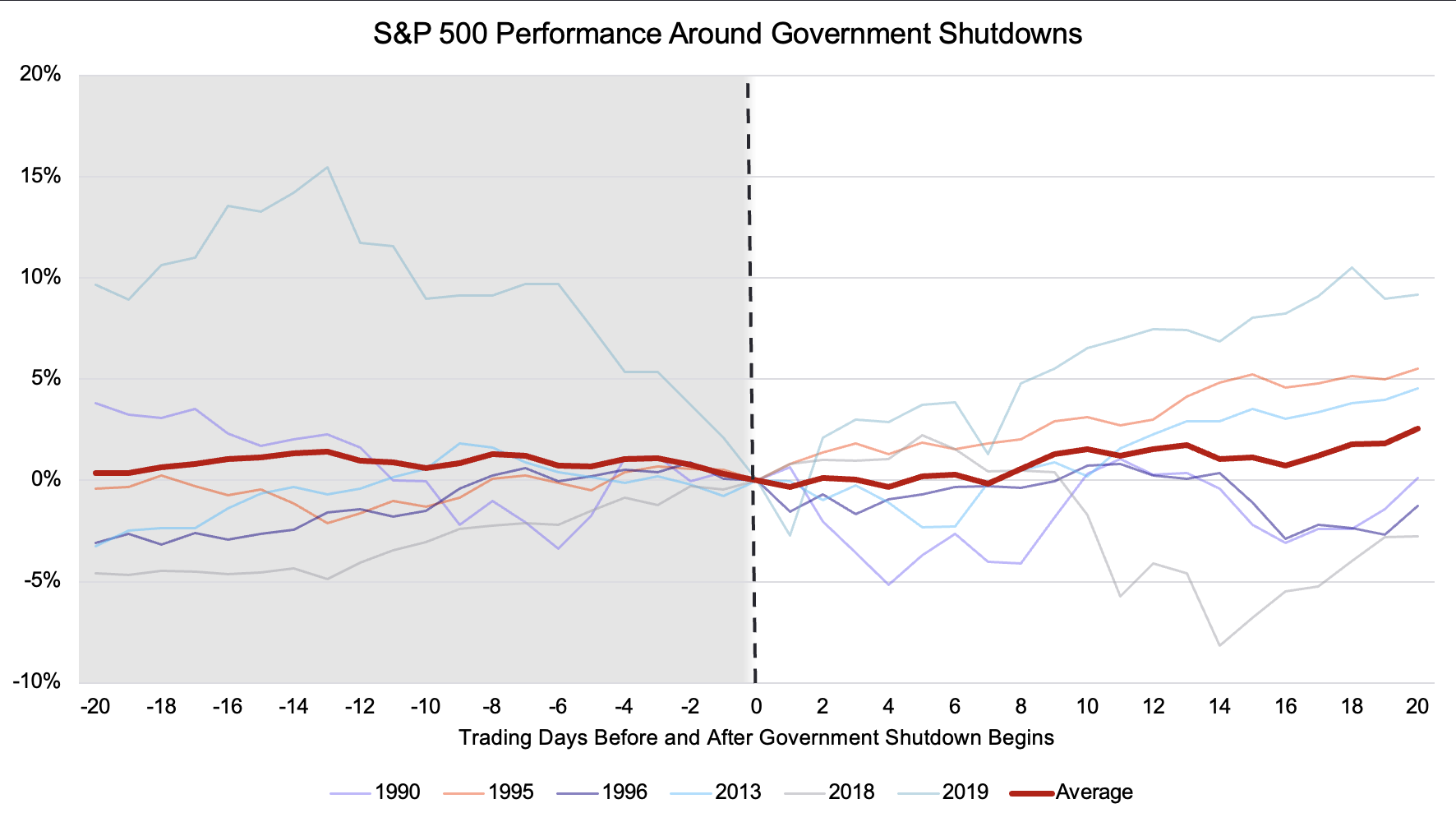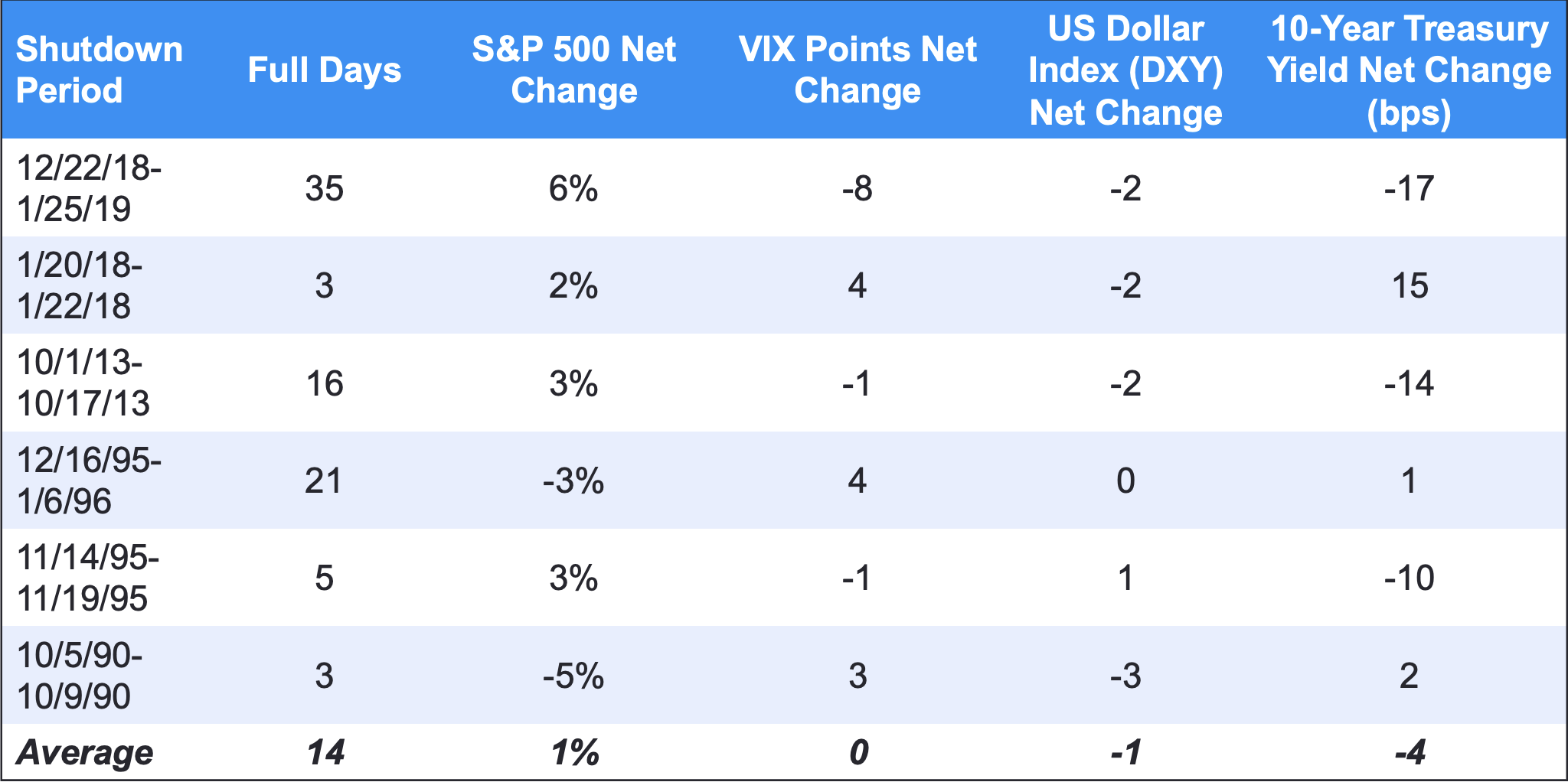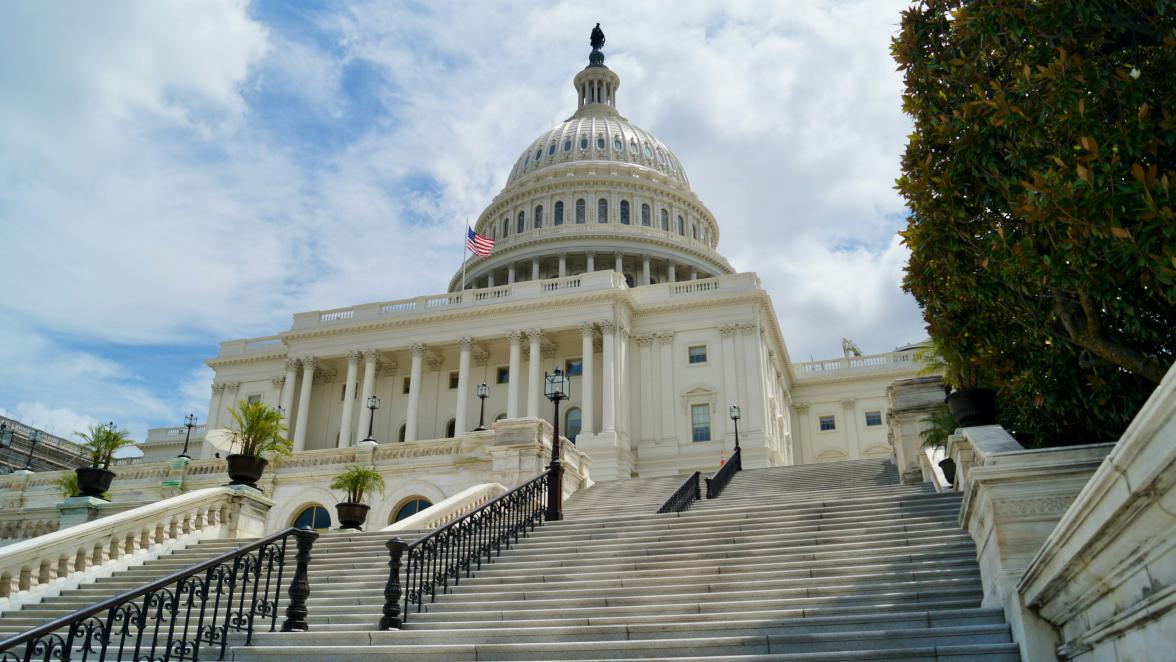The government’s fiscal year comes to an end on September 30th, and as of this writing, no new funding deal has been agreed upon. Republicans have the majority in both chambers of Congress but must receive 60 votes in the Senate to pass a new funding agreement, meaning they’ll need to win votes from seven Democratic senators. Unless a last-second deal can be made, the government will shut down at 12:01am on Wednesday, October 1st until Congress can reach a bipartisan resolution.
Government shutdowns affect Americans in a few key ways, including furloughed federal employees and the halting of non-essential government activities. An important economic implication of a shutdown is the potential pausing of economic data publications, including the highly anticipated jobs report scheduled for October 3rd, as Bureau of Labor Statistics reports may be considered non-essential. Many investors may be wondering how government shutdowns affect financial markets, so we looked at data from previous instances to get an idea.
There have been six government shutdowns since 1990, lasting between 3 and 35 days, but 14 on average. This chart looks at how the S&P 500 performed leading up to and immediately following the beginning of each shutdown. The thick red line indicates the average performance between these six instances:

Source: Bloomberg
A key takeaway that may help investors breathe easier this week is that on average, government shutdowns have not had much effect on the stock market. In fact, the S&P was higher 20 trading days later four of the six times, and only down slightly the other two. Remember that the stock market is moved by future expectations, not necessarily just the current reality. Historically, that expectation has been for a shutdown to be short lived and inconsequential to corporate profits and government spending.
This table looks at a few other key data points during shutdowns, and the story remains the same. The VIX index, which measures volatility in the stock market, goes unchanged on average during shutdowns. Likewise, the U.S. Dollar and the 10-Year Treasury Yield have been largely unaffected on average as well, all else being equal.

Source: CNBC, Bank of America
Amidst broader geopolitical volatility in 2025, this impending government shutdown may feel like a major concern to you or your clients. While it remains an important issue for our Congressional leaders to resolve, history tells us that a potential shutdown doesn’t present the need to upend your investment plans. Staying disciplined and diversified has paid off for investors through volatility so far this year, and we feel behaviorally sound investors should remain that way this week and beyond.




























